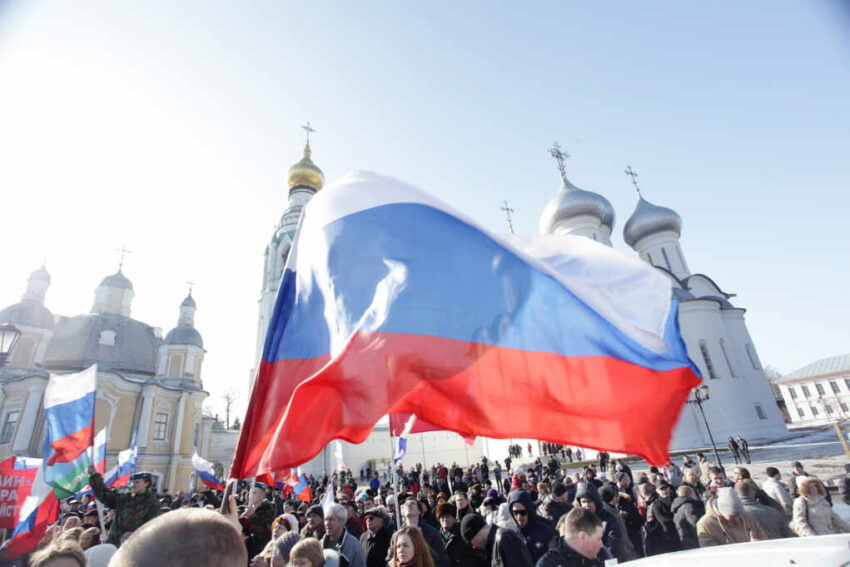UN experts are calling out Russia for the appalling trafficking and forced labor of migrant women, revealing a shocking truth that demands immediate action.
At a Glance
- UN experts urge Russia to end trafficking and forced labor of migrant women in Moscow.
- Victims primarily come from Uzbekistan and Kazakhstan, facing severe abuse.
- The European Court of Human Rights previously found Russia in violation of anti-trafficking obligations.
- Despite international pressure, Russia shows no significant policy changes or investigations.
Ongoing Exploitation in Moscow’s Shadows
In a disturbing revelation, UN experts have sounded the alarm on the systematic trafficking and forced labor of migrant women in Moscow’s Golyanovo district, a practice that has persisted for decades. These women, primarily from Uzbekistan and Kazakhstan, find themselves ensnared in a web of exploitation, often enduring violence and abuse. Despite the European Court of Human Rights ruling against Russia, finding it in violation of its anti-trafficking obligations in the case of F.M. and Others v Russia, little has changed on the ground.
#Russia: UN experts urge authorities to take immediate & decisive action to end long-standing trafficking and forced labour of migrant women in the #Golyanovo district of Moscow, ensuring accountability as well as justice & redress for all victims.https://t.co/c4ZJ1LPcfZ pic.twitter.com/qCqgbhacAc
— UN Special Procedures (@UN_SPExperts) July 28, 2025
UN experts are now demanding immediate investigations and cooperation with the victims’ home countries to address this festering issue. The call to action comes amidst credible, well-documented allegations highlighting the severe and systemic nature of the abuse faced by these women. The international community is watching closely, expecting Russia to uphold its obligations and ensure justice for the victims.
The Background of a Systemic Issue
The exploitation of migrant women in Russia has deep roots, stretching back to the early 2000s. Russia has long been a primary destination for labor migrants from Central Asia, driven by economic disparities and a lack of opportunities in their home countries. Migrant women, in particular, are vulnerable due to their precarious legal status, lack of social support, and language barriers, which traffickers exploit mercilessly.
Despite repeated complaints and advocacy efforts by victims and civil society organizations over the years, the response from Russian authorities has been lackluster. The ECHR’s ruling in 2023 was a significant legal milestone, establishing a precedent for state accountability in cases of trafficking and forced labor. However, the absence of meaningful reforms and effective investigations by Russian authorities underscores a systemic failure to protect the most vulnerable.
International Pressure Mounts
The UN experts’ recent statement on July 28, 2025, has renewed international focus on Russia’s human rights record. They emphasize the urgent need for comprehensive investigations, collaboration with Uzbekistan and Kazakhstan, and justice for the victims. The ECHR has reiterated Russia’s obligations under the European Convention on Human Rights, specifically focusing on the prohibition of slavery and forced labor.
Despite this mounting pressure, there is little evidence of significant policy changes or effective investigations by Russian authorities as of now. Victims and NGOs continue to report abuses, with systemic barriers to justice persisting. The international community is left questioning Russia’s commitment to addressing this grave human rights issue.
Implications and the Road Ahead
The short-term implications of this situation include increased international scrutiny of Russia and potential diplomatic tensions with Uzbekistan and Kazakhstan. There’s also heightened awareness among migrant communities about the risks they face. In the long-term, sustained pressure could lead to reforms in Russian migration and labor laws, though this is far from guaranteed.
Migrant women from Uzbekistan and Kazakhstan remain the primary victims, with their families and communities back home relying heavily on remittances. The economic, social, and political impacts are significant, with potential disruptions in remittance flows and labor shortages in Russia if migration declines. The broader industry effects could also be profound, affecting labor-intensive sectors like construction and services, which rely heavily on migrant labor.
Click this link for the original source of this article.
Author: Editor
This content is courtesy of, and owned and copyrighted by, https://conservativeamericatoday.com and its author. This content is made available by use of the public RSS feed offered by the host site and is used for educational purposes only. If you are the author or represent the host site and would like this content removed now and in the future, please contact USSANews.com using the email address in the Contact page found in the website menu.





